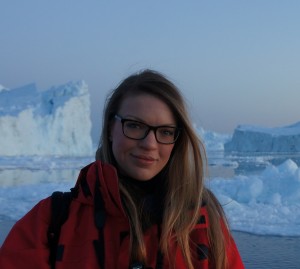AHA members are involved in all fields of history, with wide-ranging specializations, interests, and areas of employment. To recognize our talented and eclectic membership, AHA Today features a regular AHA Member Spotlight series.
 AHA members are involved in all fields of history, with wide-ranging specializations, interests, and areas of employment. To recognize our talented and eclectic membership, AHA Today features a regular AHA Member Spotlight series.
AHA members are involved in all fields of history, with wide-ranging specializations, interests, and areas of employment. To recognize our talented and eclectic membership, AHA Today features a regular AHA Member Spotlight series.
Dawn Alexandrea Berry is a postdoctoral research associate—diplomatic history, foreign policy, and security studies—at the Einaudi Center for International Studies, Cornell University. She lives in Ithaca, New York, and has been a member since 2012.
Alma maters: BA, University of Alberta, 2003; MA, University of Alberta, 2008; DPhil, University of Oxford, 2014
Fields of interest:
My research lies at the intersection of several geographic and thematic historical subfields including diplomatic and international history, security studies, the history and geopolitics of the polar regions, business history (particularly mining), history of science and technology, media history, American history, Canadian history, and the history of the British Empire (among others).
When did you first develop an interest in history?
I was a very curious child. I loved reading and asked far too many questions (many of which my mum could not answer). Studying history gave me a mechanism to find my own answers to an increasingly long list of questions.
What projects are you currently working on?
I am currently preparing a manuscript entitled Star Spangled Ice: FDR, Global Security, and the Polar Regions. It explores when, why, and how the United States became involved in the security of the Arctic and Antarctic from an international perspective.
Have your interests changed since graduation? If so, how?
My dissertation was on the North Atlantic Triangle and the genesis and legacy of the American occupation of Greenland during the Second World War. The biggest challenge I had to overcome with my doctoral work was limiting its scope and finding a digestible way to discuss the complex technological, economic, political, diplomatic, military, and social factors that led to, and resulted from, the occupation.
Whilst completing my archival research I frequently came across wonderful material on the Antarctic, and some fascinating sources on gender and sexuality, which were outside the purview of my project. Since completing my dissertation I have been able to do more comparative work on the polar regions, and follow up on some of the exciting material I discovered in the archives.
Is there an article, book, movie, blog etc. that you could recommend to fellow AHA members?
I am interested in the relationship between the historiography of the Second World War and collective memory. David Reynold’s In Command of History: Churchill Fighting and Writing the Second World War is an exceptional work that provides both critical analysis of Winston Churchill’s The Second World War and demonstrates how Churchill (somewhat self-servingly) shaped our contemporary understanding of the conflict.
What do you value most about the history profession?
Communicating the ways in which the past continues to shape the present—demonstrating that history matters—is very important to me. I enjoy finding the connections among people, circumstances, and events in the past that continue to have unexpected or unrealized impacts today.
Why have you continued to be a member of the AHA?
Having completed my graduate work in the United Kingdom, the AHA was (and continues to be) invaluable in understanding the subtle differences between the American and British higher education systems.
Do you have a favorite AHA annual meeting anecdote you would like to share?
I love hearing about other historians’ research and how they came to work on their subject. I had some phenomenal discussions in the minibus shuttle between the hotels at the DC meetings in 2014. These included a particularly memorable chat with University of Arizona Professor William Beezley about puppets and politics in Mexico—fascinating!
Other than history, what are you passionate about?
Most of my passions have some sort of historical connection. Museums fascinate me. I love travelling and have lived in six countries and visited more than 50 others. When I travel or move to a new place I try to visit at least one museum. It is so interesting to see how the past is presented to the public and how people relate to the exhibitions.
This post first appeared on AHA Today.
Tags: AHA Today Member Spotlight Military History
Comment
Please read our commenting and letters policy before submitting.






